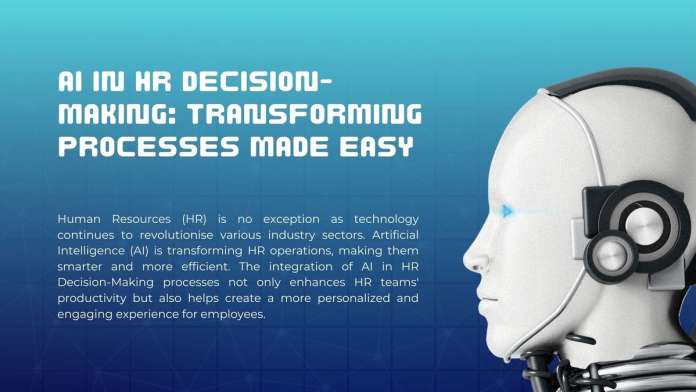Human Resources (HR) is no exception as technology continues to revolutionise various industry sectors. Artificial Intelligence (AI) is transforming HR operations, making them smarter and more efficient. The integration of AI in HR Decision-Making processes not only enhances HR teams’ productivity but also helps create a more personalized and engaging experience for employees.
Transforming HR: The Strategic Impact of AI
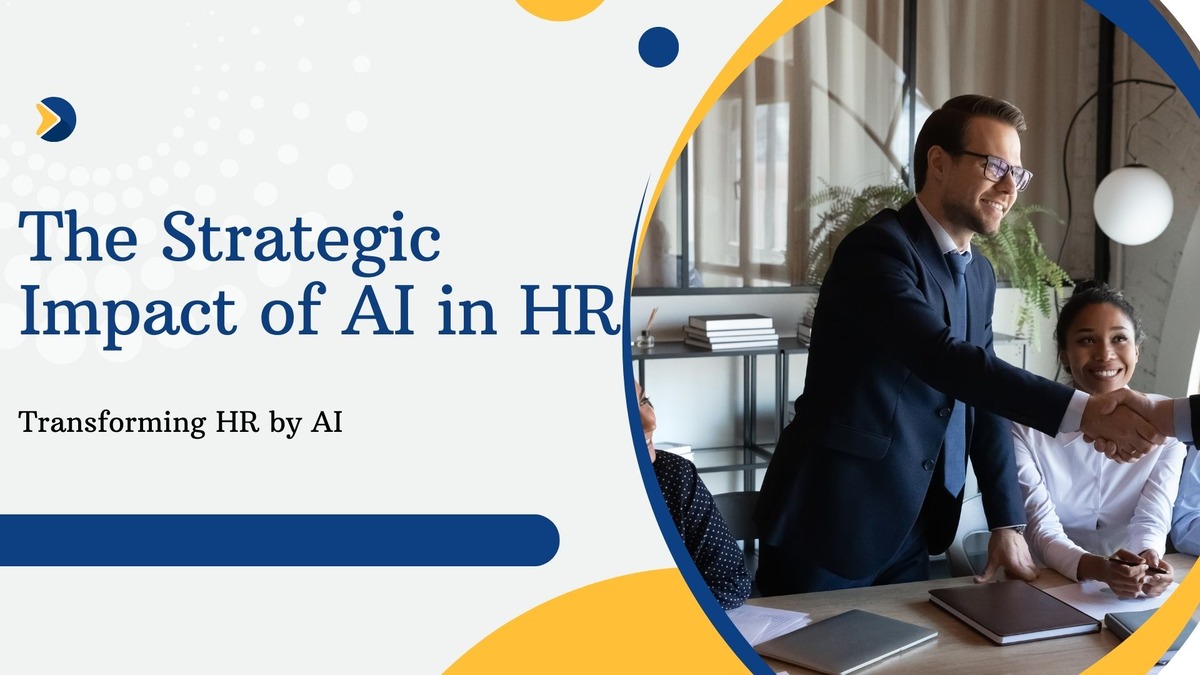
AI’s capabilities, such as machine learning, natural language processing (NLP), and predictive analytics, are addressing complex challenges in HR. These tools can handle everything from automating mundane tasks to providing deep insights into employee behavior and performance. For example, AI can sort through vast amounts of data faster than any human, helping HR managers make more informed decisions.
Moreover, AI applications in HR extend beyond mere administrative efficiency. By leveraging AI, HR departments can curate personalized learning and development programs, improve recruitment processes, and enhance employee engagement. As businesses move towards data-driven decision-making, AI stands out as a crucial ally in the HR toolkit.
AI does more than optimize workflows; it fundamentally redefines the HR landscape. From identifying the ideal candidate in a sea of resumes to predicting workforce trends, AI provides insights that can drive strategic planning and foster a dynamic work environment.
In summary, the adoption of AI in HR is not just a trend but a transformative shift, enabling HR professionals to focus more on strategic initiatives that drive business growth. Through improved accuracy, efficiency, and personalization, AI is set to be a game-changer in the future of human resources.
The Role of AI in Recruitment and Talent Acquisition
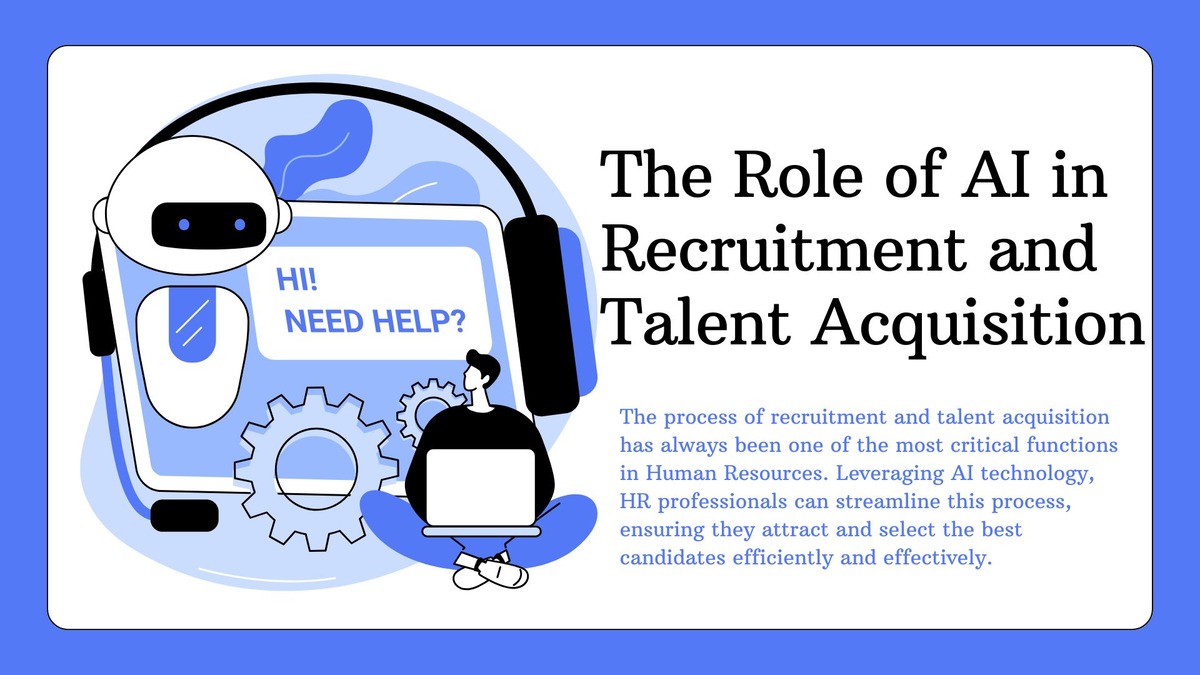
The process of recruitment and talent acquisition has always been one of the most critical functions in Human Resources. Leveraging AI technology, HR professionals can streamline this process, ensuring they attract and select the best candidates efficiently and effectively.
-
AI-Driven Resume Screening Efficiency
One of the key ways AI helps in recruitment is through automated resume screening. Parsing through hundreds or even thousands of resumes can be time-consuming. AI solutions can quickly sift through these documents, highlighting the most qualified candidates based on predefined criteria. This not only speeds up the selection process but also helps reduce human bias, ensuring a fairer and more objective initial screening.
-
AI Chatbots Enhancing Candidate Experience:
Additionally, AI-driven chatbots enhance the candidate experience by providing instant responses to inquiries, scheduling interviews, and even conducting preliminary screening questions. This automation frees up HR professionals to focus on more strategic tasks, such as active recruiting and analyzing talent needs.
-
Predictive Analytics:
AI also aids in the more nuanced aspects of recruitment, such as predictive analytics. By analyzing vast datasets, AI can predict a candidate’s potential job performance, cultural fit, and long-term retention likelihood. This allows HR teams to make more informed decisions and reduce costly turnover rates.
-
Enhancing Candidate Insights:
Moreover, AI tools such as natural language processing and sentiment analysis can help in understanding how candidates perceive the recruitment process and the organization as a whole. These insights enable HR to refine their approach, making the recruitment journey smoother for candidates and more productive for the company.
In conclusion, AI is revolutionizing recruitment and talent acquisition by making processes faster, more reliable, and data-driven. Implementing AI in these areas not only saves time but also ensures that organizations can attract and retain top talent more effectively.
Enhancing Employee Experience with AI
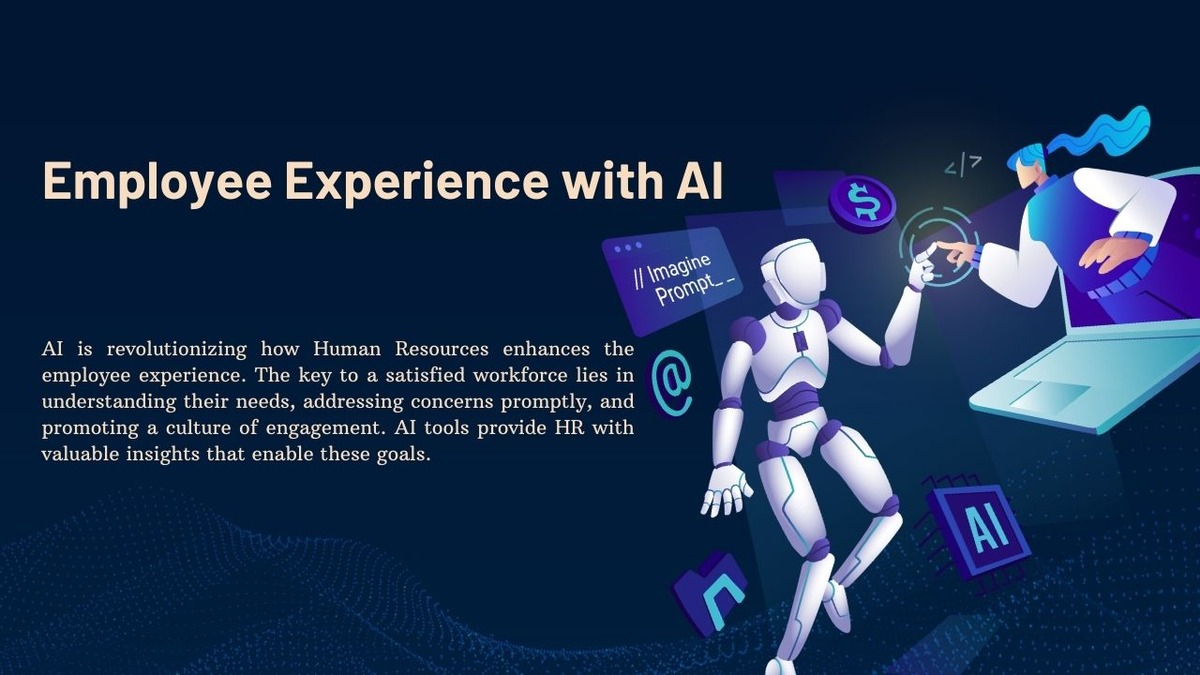
AI is revolutionizing how Human Resources enhances the employee experience. The key to a satisfied workforce lies in understanding their needs, addressing concerns promptly, and promoting a culture of engagement. AI tools provide HR with valuable insights that enable these goals.
- Employee Onboarding: One significant area where AI aids is in employee onboarding. AI-driven chatbots guide new hires through the onboarding process, offering answers to common questions, and providing necessary documentation. This streamlines the process, making employees feel supported from day one.
- Sentiment Analysis: Beyond onboarding, AI helps HR to continuously gauge employee satisfaction through sentiment analysis. By analyzing emails, survey responses, and social media interactions, AI can detect patterns and potential issues before they escalate. This proactive approach facilitates quicker intervention by HR, leading to a happier and more engaged workforce.
- Personalized Learning Through AI: Personalization is another key benefit. AI can tailor learning and development programs to individual employee needs by assessing their performance, aspirations, and skills. Personalized growth opportunities make employees feel valued, leading to higher retention rates.
- Enhanced Internal Communication : Additionally, AI-enabled platforms can streamline internal communication, ensuring that employees receive relevant information. For example, AI can summarize long-winded emails or translate corporate updates into various languages, ensuring that every employee stays informed, no matter their location.
- Democratizing Career Opportunities: Finally, AI can democratize access to career growth opportunities by identifying skills gaps and suggesting targeted training programs. This helps employees to continually develop, aligning their career paths with organizational needs.
In conclusion, AI tools not only streamline HR processes but significantly enhance the overall employee experience. By creating a more responsive, personalized, and transparent work environment, AI ensures that employees are more engaged, satisfied, and productive.
Data-Driven Performance Management
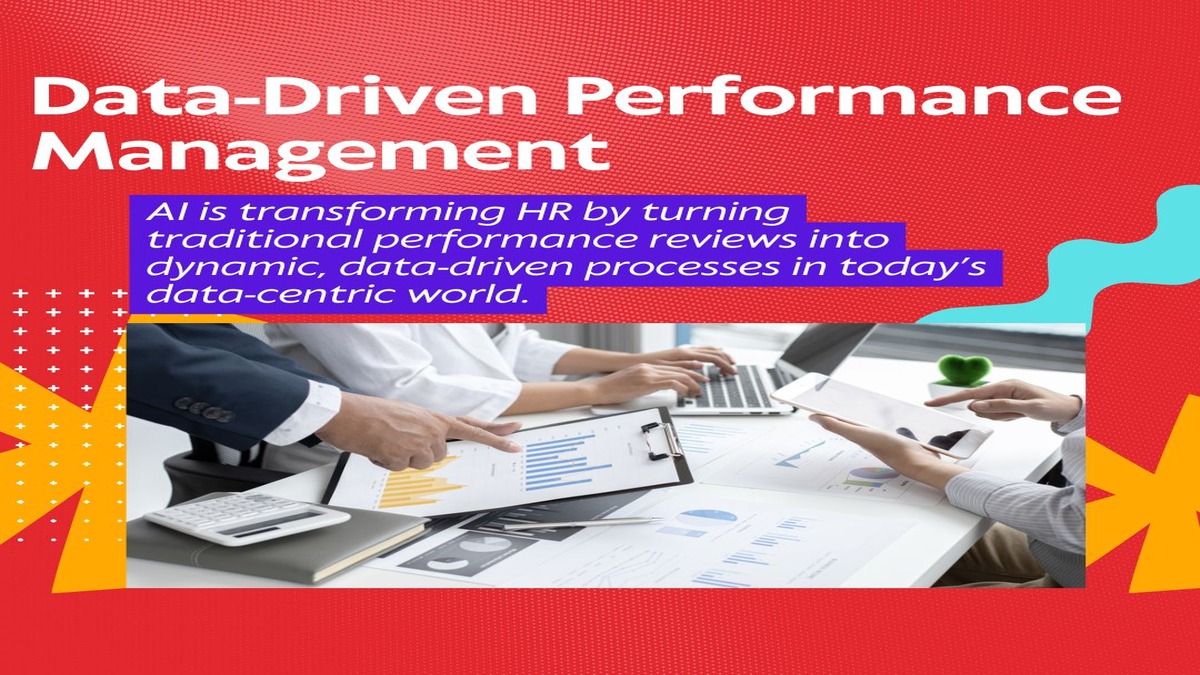
In today’s data-centric world, AI is transforming how HR departments approach performance management. Traditional performance reviews, often seen as cumbersome and subjective, are evolving into dynamic, data-driven processes thanks to artificial intelligence.
-
Performance Management:
One of the standout benefits of AI in performance management is its ability to analyze vast amounts of data efficiently. AI algorithms can sift through various sources of information—such as project management tools, employee feedback, and even email communication—to provide comprehensive performance insights. This level of analysis would be nearly impossible for human managers to achieve in a reasonable timeframe.
-
Objective Performance Evaluations:
AI also brings objectivity to performance evaluations. By considering a broad array of performance metrics, including productivity, collaboration, and innovation, AI helps reduce biases that can affect human judgment. This objectivity ensures that employees are fairly assessed, fostering a culture of transparency and trust within the organization.
-
Real-Time Feedback:
Another pivotal advantage is real-time feedback. Instead of waiting for annual reviews, AI-powered systems offer continuous performance tracking. Employees and managers receive timely updates on achievements and areas for improvement, enabling more responsive development plans. This ongoing feedback loop not only enhances individual performance but also contributes to overall productivity.
-
Predictive Analytics:
Additionally, predictive analytics powered by AI can identify potential issues before they become problems. These systems can flag early signs of disengagement or burnout, allowing HR to intervene proactively. This preemptive approach helps retain top talent and minimizes turnover, saving the company time and resources.
In summary, AI-driven performance management transforms subjective evaluations into precise, actionable insights, promoting a more effective and fair workplace. It empowers HR professionals to make informed decisions that benefit both the employees and the organization as a whole.
AI-Powered Learning and Development
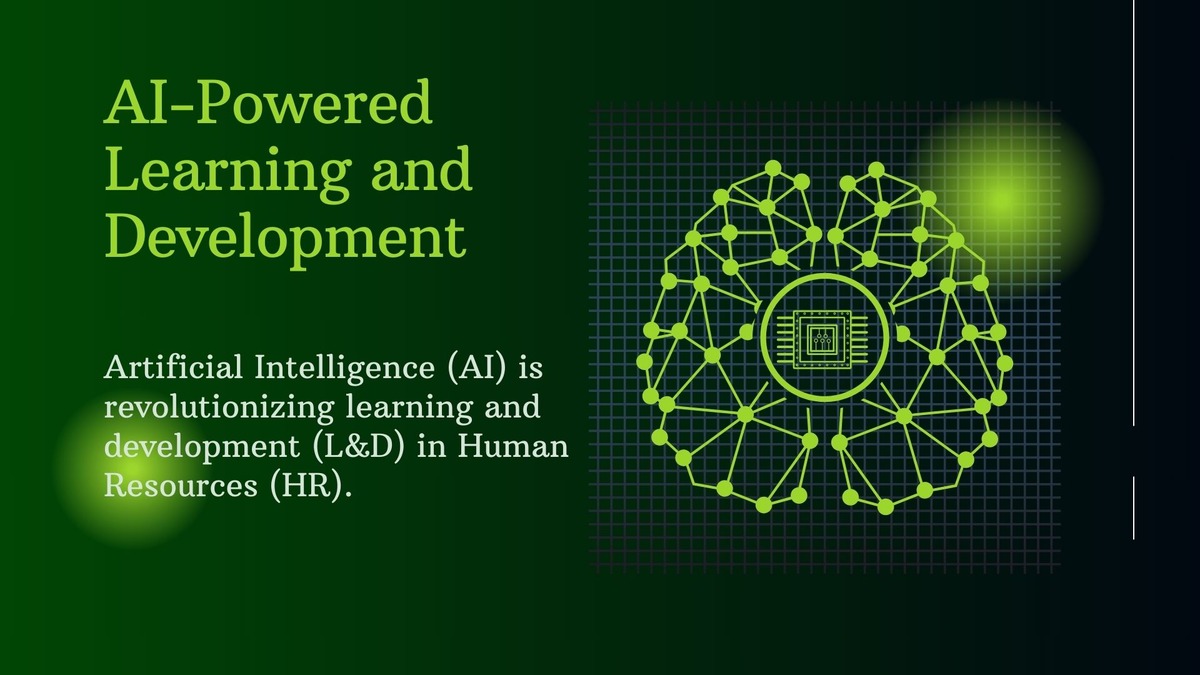
Artificial Intelligence (AI) is revolutionizing learning and development (L&D) in Human Resources (HR).
-
Personalized Learning:
One key area where AI stands out is personalized learning. Traditional training methods often take a one-size-fits-all approach, which doesn’t cater to the individual needs of employees. AI, however, analyzes employee performance data and tailors training programs to suit individual needs, boosting both efficiency and engagement.
-
Adaptive Learning Solutions:
AI can facilitate adaptive learning platforms that adjust content difficulty based on an employee’s progress. For instance, if an employee excels in certain areas, the system will present more advanced challenges to keep them engaged. Conversely, if someone struggles, the system can provide additional resources and support to help them catch up.
-
Membership Matching:
Another powerful application is AI in mentorship matching. By analyzing data points like job roles, skills, and career aspirations, AI algorithms can pair employees with mentors who best fit their needs. This tailored approach ensures that mentorship programs are beneficial and foster meaningful professional growth.
-
Optimizing Learning & Development:
AI-driven analytics also offer insights into the effectiveness of L&D programs. HR departments can track metrics like engagement rates, skill acquisition, and employee retention to continually optimize training initiatives. Additionally, AI can predict future skill needs, enabling HR to proactively train employees for emerging roles and technologies.
-
Strategic Investment in AI for L&D
Investing in AI for learning and development can yield significant returns. Not only does it create a more agile and knowledgeable workforce, but it also strengthens employee satisfaction and loyalty. Embracing AI in L&D is not just a trend—it’s a strategic move toward a more adaptive and resilient organization.
Future Trends: AI and the Evolution of HR
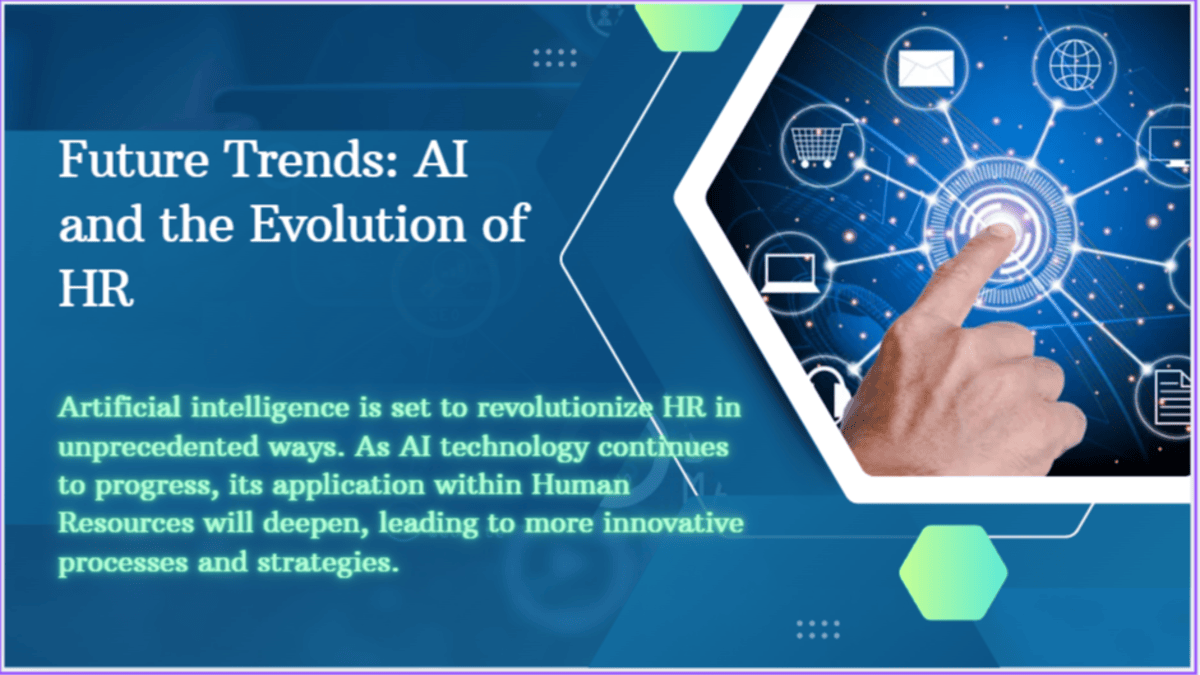
Artificial intelligence is set to revolutionize HR in unprecedented ways. As AI technology continues to progress, its application within Human Resources will deepen, leading to more innovative processes and strategies.
- Predictive Analytics: One of the major future trends is the integration of AI with predictive analytics. Imagine anticipating employee turnover before it happens—through data patterns and behavioral cues, AI can make proactive retention strategies possible. This can save companies significant resources in rehiring and retraining, and it can keep morale high.
- Enhanced Employee Experience: Personalized employee experiences will also see a big upswing. AI-driven platforms can tailor career development plans and training programs to individual needs and career aspirations. This custom approach not only aids in talent retention but also fosters a more engaged and satisfied workforce.
- AI Chatbots: AI chatbots are another upcoming trend, poised to handle day-to-day HR queries and tasks more efficiently. With AI-powered chatbots, employees can gain immediate responses to their questions about company policies, benefits, and more. This allows HR professionals to focus on more strategic initiatives rather than getting bogged down by routine inquiries.
- Data Privacy: Lastly, ethical considerations and data privacy are increasingly becoming focal points as AI in HR evolves. Companies will need to ensure AI systems are transparent, fair, and comply with privacy regulations. Maintaining this balance will be crucial for the successful integration of AI into HR.
In conclusion, the future of HR lies in leveraging AI to create smarter, more efficient, and personalized processes. Businesses that adapt to these trends will likely lead the way in securing top talent and maintaining a dynamic and engaged workforce. So, embracing AI-driven HR solutions is not just an option—it’s becoming a necessity.
Read More: Top 10 Popular SaaS Marketing Blogs in 2024

